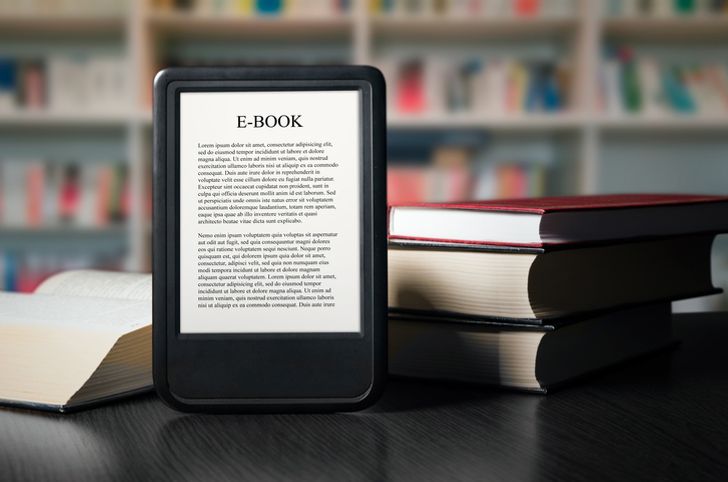
For centuries, the written word has shaped Nigeria’s cultural and intellectual identity, from oral traditions committed to print by pioneers like Amos Tutuola to modern bestsellers that sit proudly on global shelves. But in the last two decades, a quiet revolution has been taking place: the shift from paper to digital.
E-books, audiobooks, and online reading platforms are reshaping how Nigerians—especially younger generations—engage with literature. This transformation raises key questions: Will e-books replace print? Can digital platforms overcome piracy and affordability challenges? And what does the future of reading in Nigeria look like in an era defined by smartphones and streaming?
The Rise of E-books in Nigeria
The expansion of internet access and mobile phones has created fertile ground for e-books. Platforms like Amazon Kindle Direct Publishing (KDP) opened the doors for Nigerian authors to distribute works globally, while local innovations such as OkadaBooks (before its closure in 2023) tapped into the unique Nigerian market by offering mobile-friendly, affordable e-books.
E-books appeal to Nigerian readers for several reasons:
Accessibility: A book can be downloaded instantly without the need to visit a bookstore.
Affordability: E-books are often cheaper than print, a critical factor in a country where many readers are price-sensitive.
Convenience: Readers can carry entire libraries on their phones, an advantage in Nigeria’s bustling cities.
Visibility for writers: Self-published authors who once struggled to reach local bookstores now reach readers across the world.
This digital revolution has been especially powerful for younger Nigerians—digital natives who are already accustomed to consuming content on phones, tablets, and laptops.
The Audiobook Boom
While e-books have gained traction, audiobooks are emerging as the next frontier. Globally, audiobooks are the fastest-growing segment of the publishing industry, and Nigeria is beginning to follow suit.
With platforms like Audible, Google Play Books, and even local startups experimenting with African audiobook catalogs, Nigerian readers are discovering the joy of “reading by listening.” The popularity of podcasts has also primed audiences for this shift—especially younger Nigerians who often multitask while commuting, working out, or cooking.
Audiobooks also provide a solution to challenges like:
Low literacy levels: Audiobooks make stories accessible to those who may struggle with reading.
Time constraints: Young professionals can consume literature while on the go.
Cultural familiarity: Oral storytelling is deeply rooted in Nigerian tradition, and audiobooks feel like a modern continuation of folktales and fireside storytelling.
Changing Reading Habits
Studies and anecdotal evidence suggest that Nigeria’s reading culture, once considered under threat, is undergoing transformation rather than decline. Younger Nigerians may not always be flipping through paperbacks, but they are reading on blogs, social media, and increasingly, e-book platforms.
What is shifting is not whether people read but how they read:
Shorter attention spans mean readers favor shorter works, serialized fiction, or articles.
Mobile-first habits mean the phone, not the library, is the new gateway to books.
Social reading has grown, with book clubs moving online and communities forming around hashtags, Twitter threads, and Instagram book reviews.
For many, digital platforms are not replacing reading but reframing it for the realities of the 21st century.
Challenges in Nigeria’s Digital Reading Space
Despite the promise, digital reading in Nigeria faces significant hurdles.
1. Piracy
Piracy remains the biggest threat to authors and publishers. PDF copies of books are routinely shared on WhatsApp, Telegram, and blogs without the author’s consent. This robs writers of revenue and discourages investment in quality publishing.
2. Affordability vs. Profitability
While e-books are cheaper than print, Nigerian readers still expect them to be very affordable, sometimes even free. Yet, professional editing, design, and marketing costs remain high. Authors must balance accessibility with sustainability.
3. Digital Infrastructure
Not all Nigerians have consistent access to electricity, internet data, or smartphones capable of running e-book or audiobook apps. This digital divide limits the reach of online publishing.
4. Platform Instability
The shutdown of OkadaBooks in 2023 highlighted how fragile local publishing startups can be. Nigerian authors suddenly lost a trusted platform that had democratized access to readers. Such instability creates uncertainty for both writers and readers.
5. Cultural Preferences
Many Nigerians still prefer the tactile feel of physical books, particularly for academic use. Printed books retain a sense of prestige that digital hasn’t fully matched.
Opportunities Ahead
Despite these challenges, the digital shift holds immense promise for the future of Nigerian literature.
Global Access
E-books and audiobooks connect Nigerian stories to the diaspora and international markets. A self-published novel in Lagos can be bought instantly in London or New York, expanding both readership and cultural influence.Localized Platforms
The next wave of publishing startups in Nigeria may focus on subscription models, localized apps, and affordable micro-purchases tailored to African realities. Think “Spotify for books,” but with prices aligned to local economies.Educational Integration
E-books and audiobooks could play a bigger role in education. Schools and universities adopting digital libraries would not only cut costs but also normalize e-reading among young Nigerians.Hybrid Publishing
A likely future scenario is hybrid: authors release both print and digital editions, targeting different audiences. While students and professionals may prefer print for study, casual readers and commuters lean toward digital.Community Building
Digital spaces allow writers to engage directly with readers—through newsletters, WhatsApp book clubs, or Instagram Lives. This direct interaction builds loyal fan bases and reduces dependence on traditional gatekeepers.
The Future of Reading in Nigeria
The digital shift is not about replacing print but about expanding possibilities. In Nigeria, where storytelling has always been central to identity, technology offers a way to preserve traditions while reaching wider audiences.
E-books provide affordable, instant access to stories.
Audiobooks bring back the oral tradition in a modern format.
Digital communities turn reading into a shared, interactive experience.
The future will likely be hybrid, where print, e-books, and audiobooks coexist—each serving different purposes and audiences. For Nigerian authors, this means more opportunities to publish, more ways to reach readers, and more potential revenue streams. For readers, it means more stories in more accessible forms.
If Nigeria can tackle piracy, invest in digital infrastructure, and support local platforms, the digital shift may not only reshape reading habits but also cement the country’s place in the global literary marketplace.

